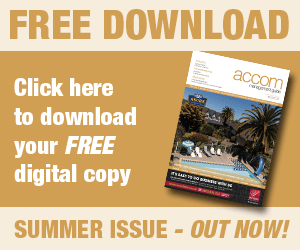Social media – opportunity or fad?
- Details
- Published Date
- Written by Ali Mehdi. CEO, RevTrak
Think social media is a fad? Consider the following statistics. According to the online competitive intelligence service socialmediaexaminer.com, social media growth continues to skyrocket.
- There are now more than 800 million active Facebook users, with over 200 million added in 2011.
- In fact, if Facebook were a country, it would be the world's fourth largest.
- The most recent count of blogs being indexed by Technorati.com currently stands at 133 million.
- It has been reported that YouTube had a record 20 billion video views in October 2011.
- Twitter has more than 375 million registered users and 100 million active users worldwide.
- 39 per cent of twitter members have tweeted and 29 per cent have re-tweeted about a brand.
- The online photo sharing site Flickr now hosts more than 3.6 billion user images.
- The online bookmarking service Delicious has more than five million users and more than 150 million unique bookmarked URLs.
- Nearly 23 per cent of online time is spent on social networks.
- Comscore.com released a study in 2011 that showed how business brands that post at least once every day will reach 22 per cent of their fans in a given week.
- One out of five social network users is likely to visit another social site after leaving one.
- 50 per cent of small business owners reported gaining new customers through social media – most notably through Facebook and LinkedIn.
- 51 per cent of Facebook users and 64 per cent of Twitter users are more likely to buy from the brands they follow.
The three most important reasons small businesses leverage social media are:
- Connecting with customers (28 per cent)
- Visibility (27 per cent)
- Self-promotion (26 per cent)
So, you see, this social media thing is perhaps going to catch on after all. It is a myth that the birth of social media has made it easier for us to find potential customers, listen to their needs and perhaps use social media and other tools to reach out to them. With all the changes to the way social media marketing takes place, the hospitality industry is reasonably concerned with whether or not social media marketing is worth the hassle.
In all fairness, we all know social media can work. But is it worth the effort compared to other traditional marketing methods, such as trade-shows or even more traditional approaches like postcards or even business cards? Social media does one thing better than any other marketing media: it generates word of mouth. If this is the best way for you to sell your hospitality business and the most efficient manner for driving traffic, then social media will be well worth the effort. We often approach social media as though it is the destination rather than the vehicle.
Accommodation operators often want to be on Twitter, Facebook or Google+ but don't consider that these channels are actually communications tools and that consistent action must be taken to engage with followers and fans. Social media is not the stopping place – it is the starting place. Hoteliers have to take action on their prospects by engaging with their fans and turn them from passive fans to transacting customers.
Search engine optimisation (SEO) is a great method for maximising your business website's potential for visibility on the internet. Consistent social media efforts enhance hospitality businesses search engine rankings. One of the easiest ways to track how your social media efforts are affecting search engine rankings is to measure before, during, and after any campaigns.
Prior to any social media campaign, measure where you stand in search engines. While the campaign is ongoing, re-measure to see if the impact is fast or lagging. Then after the campaign, monitor search engine results at least weekly for several months. There are several other free tolls such as Klout, Facebook Insights, Bit.ly, Woopra and so on available to measure the effectiveness of your social media campaigns. Another benefit that social media can provide is referral links that drive traffic to your website. Referral links are very easy to track using almost any freely available analytics software such as Google Analytics.
This will help you quickly identify which social media efforts are working the best for your hotel. For example, if Twitter drives lots of traffic, increasing tweets may be a simple way to dramatically impact your site's traffic. Social media marketing has a lot of crossover into other areas of hospitality marketing, so you get added benefits. Tracking search engine rankings, referral links, and sales will help you determine if social media marketing is a good fit and if it is working efficiently for you.
Whether you run a small motel or a large corporate hotel, you will need a solid social media strategy for 2012. As more people embrace Twitter, Facebook, Google+ and other social media networks, it is time to make social media an integral part of your business marketing strategy and start participating in the social space.


